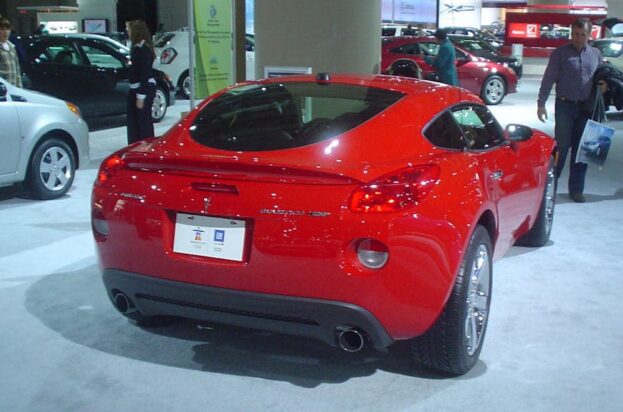Only a few months ago, the focus devoted to the auto industry has been strong results from 2013 and the promise of auto show creations. Minds that were once consumed by the exhilaration of performance vehicles like the 2015 Chevrolet Corvette Z06 or maybe the utility of the new Ford F-150 has turned to automobiles currently in the marketplace; in some cases, for vehicles that are no longer in production. Recalls and vehicle defeats have taken a dominant position among every automotive-related conversation. Though recall notices are often accepted as a largely routine way to insure auto manufacturers have delivered us the safe, reliable cars we have purchased, one incident has brought the entire industry’s devotion to safety into question in a display not seen since the unintended acceleration risks was publicized with Toyota vehicles in 2010.
In recent weeks, General Motors’ ignition switch safety concerns have reached a situation of critical mass. A defect linked to 13 deaths at this time, something as absurd as the weight of a keychain can cause a German Motors’ product to unsafely shut-off. Some of General Motors’ highest volume small cars from 2003 to 2011 such as the Chevrolet Cobalt, Pontiac G5, Saturn Ion and the Pontiac Solstice are among the related vehicles. With allegations that there was a cover-up, company CEO Mary Barra faced a harsh line of questioning from the United States Senate Subcommittee on Consumer Protection, Product Safety and Insurance last week. The two days of testimony grew into a hostile scene as no acceptable answer was found for why the ignition switch problem was allowed to expand into fatal accidents. General Motors is currently scrambling to provide replacement ignition switches to what are 2.6 million vehicles.
As was the case following the massive Toyota recall, the high-profile General Motors recall has placed every automaker’s announcement of safety defects under a powerful microscope. Chrysler and Ford have both issued recalls during the past seven days appearing to gain more media spotlight than usual. A new recall from Mazda readdresses an issue with spiders nesting in the fuel tank vent tube potentially causing a fire.
Today, Toyota announced they are globally recalling more than 6.5 million vehicles to fix a steering component. With 1.3-million vehicles in the United States, the recall is affecting certain cars and crossover vehicles constructed from 2006 to 2010. The 2006-2010 Toyota Yaris, 2009-2010 Corollas and 2006-2008 RAV4s are among products being recalled. This recall has been issued due to concern a connection between the airbag module connected with a spiral cable assembly that could become damaged under steering wheel turning stress. If this happens, the airbag warning light will come on. Toyota has prepared an all-new new cable assembly to replace the old one in affected vehicles. With the 2009-2010 Toyota Matrix also included in this recent recall notice, General Motors may be recalling later Pontiac Vibe (based on the Matrix) before the day is over.
The General Motors ignition switch safety issue has been a fiasco to follow. Not as much for the lack of information but for the notion that common consideration is thrown out the window. Grieving families, multiple class-action lawsuits and an overall stain to the automobile has resulted from what clearly appears to be shear neglect.
Personally, I found it fruitless watching the Mary Barra’s appearance in front of United States Congress. It was once-again a moment where sensibility did not protect drivers or bring the deserved answers to victims of a company’s decision-making process. Another headache is typical posturing of politicians to appear tough towards businesses when government safety procedures also failed to minimize harm. I was also wondering where was Rick Wagoner (the CEO who presided over the so-called “Old GM” where these vehicles originated) and perhaps he would have been able to fill in some blanks during Barra‘s questioning? As much as I enjoy praising the seventh-generation Corvette or happily cheer on the Chevrolet SS in NASCAR, I hold General Motors to a high standard that comes with high expectations. I expect them to produce safe, reliable vehicles and tirelessly commit to insuring this is the case. Granted a new General Motors has emerged from the bankruptcy but even the old company should have known how to best serve its customers.
I said this before and I will say it again; automobiles are some of the most complicated mechanical products we have in this world at such a large scale. It‘s reasonable to assume some problems who result in the after-sale stage for buyers. When it is a safety defect, myself, and I am sure is many others, will respect an honest corporate citizen.
Information and photo source: Chris Nagy, General Motors, National Highway Traffic Safety Administration, Toyota Motor Corporation


